Rising risky loans and the talent of making excuses
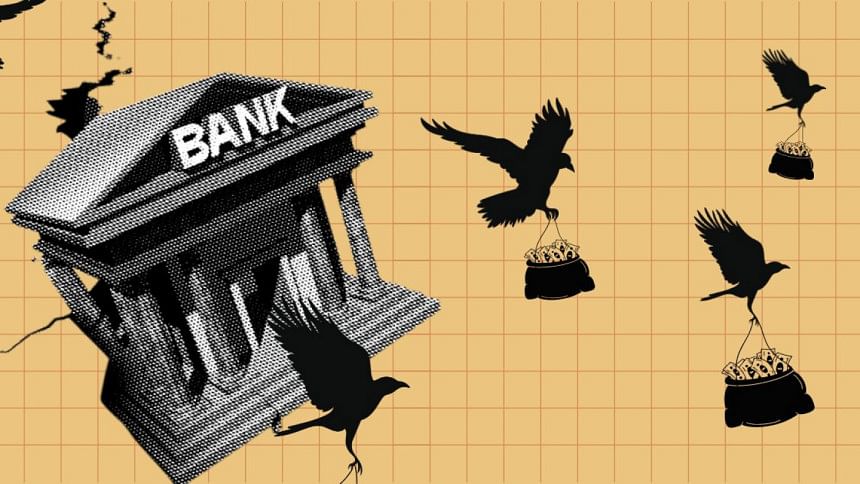
The Bangladesh Bank's (BB) Financial Stability Report 2022, released this month, revealed that our banking sector's risky loans amounted to Tk 377,922 crore by December 2022. This amount can be arrived at by calculating the total non-performing loans (NPLs), outstanding rescheduled and restructured loans, as well as written-off loans. It seems that the report was prepared under pressure from the International Monetary Fund (IMF), and BB was not eager to have it placed under the spotlight. Politically, it must also be embarrassing for the government as it has largely failed to rein in wilful defaulters and reduce the surge of bad loans. Economically, this culture is attributable to a gradual deterioration of Bangladesh's financial health.
The amount of advances reached Tk 1,472,112 crore as of June 2023, as data on the central bank's website suggests. The figure for risky loans counted those till December 2022. Surely, the number of delinquent loans had crawled further up by June this year. If included, we can easily assume that this amount of risky loans would have occupied over 25 percent of the total advances till June. Meanwhile, the amount of defaulted loans surged from Tk 120,656 crore at the end of December 2022 to Tk 131,620 crore by the end of March.
Thus, the amount of NPLs, though still below 10 percent of loans, has experienced positive growth. The actual share of NPLs in total loans would have crossed 20 percent had BB not loosened the definition under the tacit dictation of the finance ministry. Such allowances made for habitual defaulters have created incentives for new and old borrowers to default, and then be excused later. This trend poses a serious threat to the financial industry. Almost all of the risky loans will gradually be defaulted, regardless of BB branding them as "rescheduled" or "restructured" or "doubtful." This malignant growth of the default culture has nothing to do with the real state of the economy – which has grown at a rate of 6.3 percent between 2009-2022, as data from the World Bank suggests. Rather, this is solely attributable to poor governance and the political practice of pampering the superrich. Though the central bank and the finance ministry readily blame the war in Ukraine or the Covid-19 pandemic for any shortcoming on their part, the bad loans cannot be explained away as such.
By raising its policy rates to curb high inflation, the US has been successful in bringing its inflation down to as low as 3.3 percent in July 2023 from nine percent in mid-2022. Bangladesh, whose inflation rate has been hovering near 10 percent for some time now, is failing to take such measures due to its strange policy on the interest rate cap, which favours wealthy borrowers who will eventually become defaulters or money launderers.
Of course, new excuses can always be discovered, such as disturbances created by opposition parties, occurrence of natural calamities, side effects of US sanctions on Russia, social discontent over US visa policies and whatnot. But how far will these excuses justify the authorities' failure (both now and in the future) regarding poor loan recovery, fiscal incapacity, and foreign reserve depletion? The truth is that financial policymakers have become experts in manufacturing excuses which lack research and economic reasoning.
In its Monetary Policy Statement of July-December, the central bank went so far as to blame interest rate hikes in the US as a reason behind the instability of the taka's exchange rate since April 2022. But what of BB's highly managed, non-market exchange rate which has remained aligned with an artificially higher value of the taka since 2016? By raising its policy rates to curb high inflation, the US has been successful in bringing its inflation down to as low as 3.3 percent in July 2023 from nine percent in mid-2022. Bangladesh, whose inflation rate has been hovering near 10 percent for some time now, is failing to take such measures due to its strange policy on the interest rate cap, which favours wealthy borrowers who will eventually become defaulters or money launderers.
In its report, BB acknowledged, "Asset quality of the banking sector as a whole slightly deteriorated in 2022 as gross NPL showed a marginal rise…" But there are two errors in the statement. First, the word "slightly" may be pleasing to the finance ministry, but it is technically wrong. It should be replaced by "remarkably." Second, the asset quality dropped not just because NPLs showed a "marginal" rise, but because risky loans increased remarkably as borrowers sensed politicians' reluctance to displease looters and money launderers. Instead of superficially looking at the numbers, BB should have observed the trend and character of surging risky loans.
As the central bank asserts, "Ensuring the proper monitoring of regular and rescheduled/restructured loans and the pace in recovery of NPLs may improve the asset quality of the banking industry." Bangladesh Bank's hope of seeing an improvement in asset quality will remain wishful thinking unless the nature of its loan administration is changed. The BB governor relaxed the definition of defaulted loans shortly after assuming office, and this might have been enough to signal to professional defaulters that regulations exercised by the central bank would now be lax. This was a massive blunder, and BB now has to face the consequence of being dealt more and more bad loans.
The BB report also stated that "... external issues like (the) prolongation of the Russia-Ukraine conflict and other geopolitical issues may result in slow business as well as impaired debt-servicing capacity of the borrowers, which might ultimately deteriorate the asset quality of the overall banking sector in Bangladesh." This is a roundabout way of saying that the central bank of Bangladesh will fail to recover loans and explain it away using irrelevant excuses. After all, what do rising default loans in Bangladesh have to do with the Russia-Ukraine war? Do our businessmen live in Ukraine, or have they invested in Russian assets frozen by the US? In the end, our financial authorities' talent of making excuses does not make sense in terms of economics.
Dr Birupaksha Paul is a professor of economics at the State University of New York at Cortland in the US.

 For all latest news, follow The Daily Star's Google News channel.
For all latest news, follow The Daily Star's Google News channel. 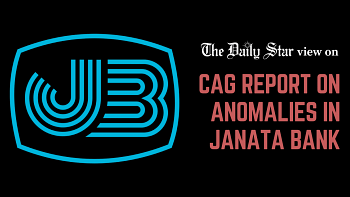
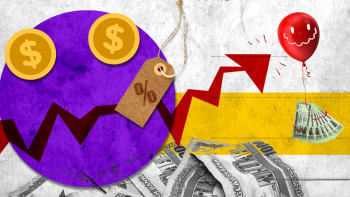
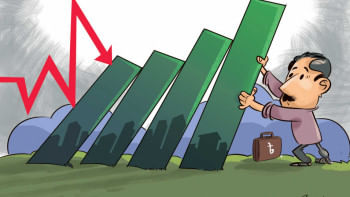




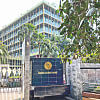

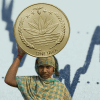

Comments